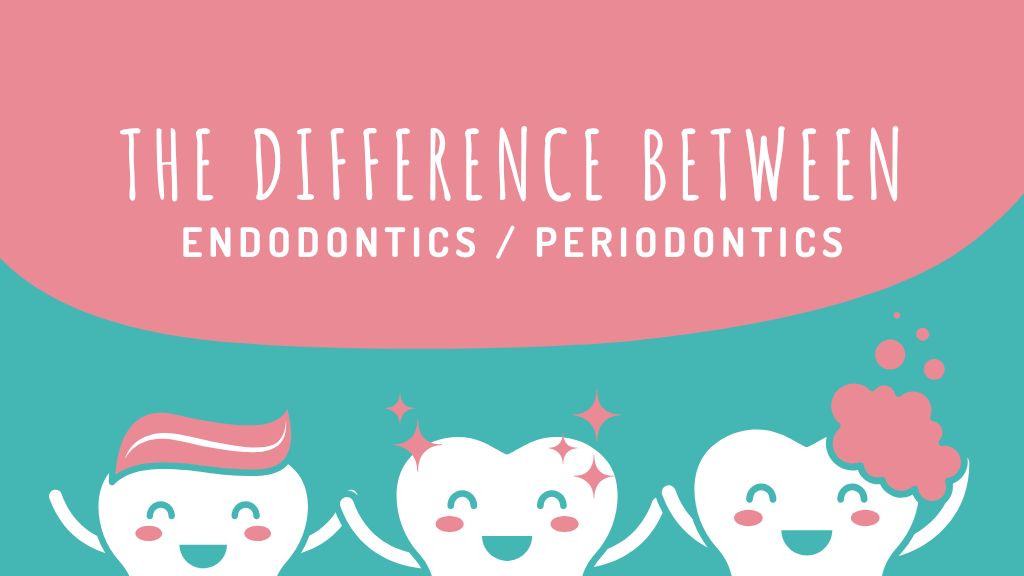Dentistry is a broad field with many specialized areas that deal with different oral health problems. The fields of endodontics and periodontics are two prime examples. They both have to do with mouth health, but they cover different areas. We will talk about these conditions, their signs, how to take care of them at home, and how dentists can help, in this blog.
Endodontics
Endodontics is a branch of dentistry that studies the inside of teeth, mainly the dental pulp and root canal system. Nerves, blood vessels, and muscular tissues are all found in the dental pulp. These are necessary for the growth and health of a tooth. Endodontists provide treatments like root canals to save teeth that have been badly decayed or hurt.
Periodontics
The supporting tissues of the teeth, like the gums, bone, and ligaments, are looked at in periodontics. Periodontists are experts at treating gum diseases like gingivitis and periodontitis, as well as bone loss and other problems that affect the base of the teeth.
Symptoms to Watch Out For
| Endodontic Issues | Periodontal Issues |
| Tooth pain that is severe or persistent, especially when chewing. | Red, swollen, or bleeding gums, especially after brushing or flossing. |
| Sensitivity to hot or cold temperatures that lingers even after the source is removed. | Persistent bad breath or a bad taste in the mouth. |
| Swelling or tenderness near the affected tooth. | Receding gums or teeth that appear longer than usual. |
| Formation of abscesses or pimples on the gums. | Loose teeth or changes in bite alignment. |
How to Take Care of Them at Home
To keep your endodontic health in good shape, you should brush your teeth twice a day with fluoride toothpaste and floss every day. Avoiding hard foods that can break teeth and using desensitizing toothpaste right away for sensitive teeth can also help keep your dental pulp healthy.
If you want to keep your lips healthy, use a soft-bristled toothbrush and replace it every three months. To get rid of plaque between teeth and along the gumline, you need to brush every day. Rinsing your mouth with an antibacterial mouthwash also gets rid of bad bacteria, and drinking water helps your saliva flow, which also kills bacteria.
How a Dentist Can Help
Before starting endodontic treatment, dentists will do a full checkup and X-rays to figure out what’s wrong and how bad the pulp damage is. When there is an infection, root canal treatment may be used to remove the infected pulp, clean the root canals, and seal the tooth so that the infection doesn’t come back. After that, the tooth may be fixed with a dental cap to make sure it works and stays strong over time.
When there are problems with the gums, dentists start by scaling and root planing, which cleans the teeth above and below the gumline. This gets rid of plaque and tartar buildup. For more serious cases, treatments like bone or gum grafting can replace lost tissue and help keep the teeth stable. Dentists also clean teeth regularly and keep a close eye on gum health to find and fix problems before they get worse.

